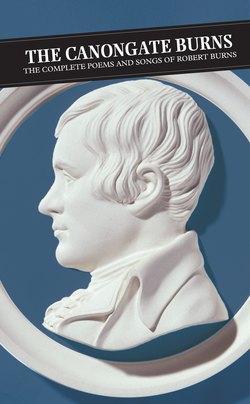Читать книгу The Canongate Burns - Robert Burns - Страница 10
ОглавлениеPART ONE
The Kilmarnock Edition
1786
APRIL 14th, 1786
PROPOSALS,
FOR PUBLISHING BY SUBSCRIPTION,
SCOTCH POEMS,
BY ROBERT BURNS.
The work to be elegantly Printed in One
Volume, Octavo, Price, stitched Three Shillings.
As the Author has not the most distant
Mercenary view in Publishing, as soon as so many Subscribers appear as will defray the necessary Expense, the Work will be sent to the Press.
‘Set out the brunt side o’ your shin,
For pride in Poets is nae sin;
Glory’s the Prize for which they rin,
And Fame’s their jo;
And wha blaws best the Horn shall win:
And wharefare no?’
RAMSAY.
The following trifles are not the production of the Poet, who, with all the advantages of learned art, and perhaps amid the elegancies and idleness of upper life, looks down for a rural theme, with an eye to Theocrites or Virgil. To the Author of this, these and other celebrated names their countrymen are, in their original languages, ‘A fountain shut up’ and, a ‘book sealed’. Unacquainted with the necessary requisites for commencing Poet by Rule, he sings the sentiments and manners, he felt and saw in himself and his rustic compeers around him, in his and their native language. Though a Rhymer from his earliest years, at least from the earliest impulses of the softer passions, it was not till very lately, that the applause, perhaps the partiality, of Friendship, wakened his vanity so far as to make him think any thing of his was worth showing; and none of the following works were ever composed with a view to the press. To amuse himself with the little creations of his own fancy, amid the toils and fatigues of a laborious life; to transcribe the various feelings, the loves, the griefs, the hopes, the fears, in his own breast; to find some kind of counterpoise to the struggles of a world, always an alien scene, a task uncouth to the Poetical mind; these were his motives for courting the Muses, and in these he found Poetry to be its own reward.
Now that he appears in the public character of an Author, he does it with fear and trembling. So dear is fame to the Rhyming tribe, that even he, an obscure, nameless Bard, shrinks aghast, at the thought of being branded as ‘an impertinent blockhead, obtruding his nonsense on the world; and because he can make a shift to jingle a few doggerel, Scotch rhymes together, looks upon himself as a Poet of no small consequence forsooth’.
It is an observation of that celebrated Poet [Shenstone], whose divine Elegies do honour to our language, our nation, and our species, that ‘Humility has depressed many a genius to a hermit, but never raised one to fame’. If any Critic catches at the word genius, the Author tells him, once for all, that he certainly looks upon himself as possest of some poetic abilities, otherwise his publishing in the manner he has done, would be a manoeuvre below the worst character, which, he hopes, his worst enemy will ever give him: but to the genius of a Ramsay, or the glorious dawning of the poor, unfortunate Ferguson, he with equal unaffected sincerity, declares, that, even in his highest pulse of vanity, he has not the most distant pretensions. These two justly admired Scotch Poets he has often had in his eye in the following pieces; but rather with a view to kindle at their flame, than for servile imitation.
To his Subscribers, the Author returns his most sincere thanks. Not the mercenary bow over a counter, but the heart-throbbing gratitude of the Bard, conscious how much he is indebted to Benevolence and Friendship, for gratifying him, if he deserves it, in that dearest wish of every poetic bosom – to be distinguished. He begs his readers, particularly the Learned and the Polite, who may honour him with a perusal, that they will make every allowance for Education and Circumstances of Life: but, if after a fair, candid, and impartial criticism, he shall stand convicted of Dulness and Nonsense, let him be done by, as he would in that case do by others – let him be condemned, without mercy, to oblivion.
R.B.
